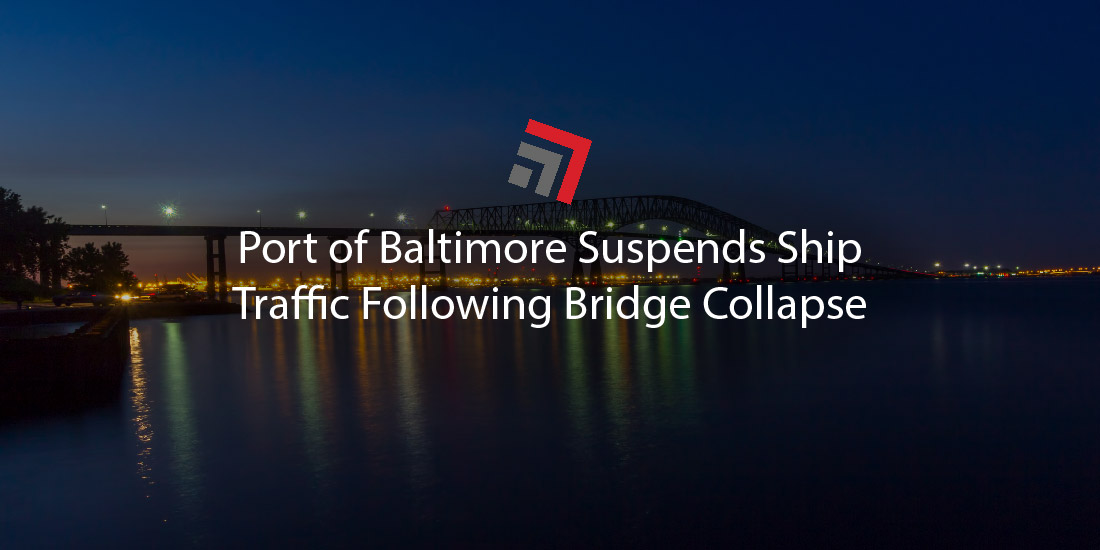Early Tuesday morning, a disabled containership veered into support columns of Baltimore’s Francis Scott Key Bridge, promptly causing the structure to collapse. The sudden accident has since closed the Port of Baltimore, whose facilities on the Patapsco River are upstream from the wreckage, from waterborne trade.
The Port of Baltimore’s authority released a brief statement, alerting the public that ship traffic into and out the port is suspended until further notice.
The timeframe of when officials can safely reopen waterborne access to the port is currently unclear. In an advisory email to customers, ocean carrier MSC stated that it expects it will take “several months” before resuming calls to Baltimore. In the meantime, carriers have announced intentions of rerouting cargo at other East Coast ports.
While being the coast’s fifth-largest in container handling, Baltimore is the largest handler of roll-on, roll-off cargo, such as motorized vehicles and equipment, on the U.S. eastern seaboard. The inaccessibility to the port’s terminals will mostly be felt by the automotive sector.
Short-term disruption to intermodal movement likely
Rightly, there’s been fear from stakeholders that Baltimore’s compromised status will halt intermodal movement on the East Coast and spur on regional congestion. While experts agree that disruptions are likely apparent in the short-term, Gross Transportation Consulting explained to Supply Chain Dive that alternative ports, collectively, should have enough capacity, at least at current levels, to absorb the volume of diverted containers. The ports of New York, Philadelphia, and Norfolk are set to be the main recipients of the routing shifts. In reaction to the diversions, intermodal cargo in the Baltimore area will be vulnerable to increased drayage expenses.
Freight railroads have also advised shipper-customers of late shipments as a result. Class I railway CSX alerted its customers on the same day of the accident.
Fellow Class I Norfolk Southern told Supply Chain Dive that, while its operations were not significantly disrupted, it is communicating with customers who may have been impacted.
International intermodal shipments have stopped at the Port of Baltimore, however domestic intermodal service within the Baltimore area will remain online.
Final Thoughts
The collapsed bridge carried Interstate 695 over the Patapsco River and served as a well-trafficked freight corridor. Trucking movement will be challenged in costs and time to detour through local streets and other freeways.
On Tuesday, President Joe Biden vowed that the federal government would pay to rebuild nearly the two-mile-long crossing. However, before any reconstruction can take place, officials must first remove the large containership and structural debris from the waterway.
Tuesday’s accident involved eight construction workers who were repairing potholes on the bridge when it collapsed. Two workers were rescued, while two were found deceased late Wednesday. The bodies of the four remaining workers have not been recovered yet. Our thoughts are with the friends and families of workers as well as the city of Baltimore as it rebuilds from this tragic event.



Recent Comments